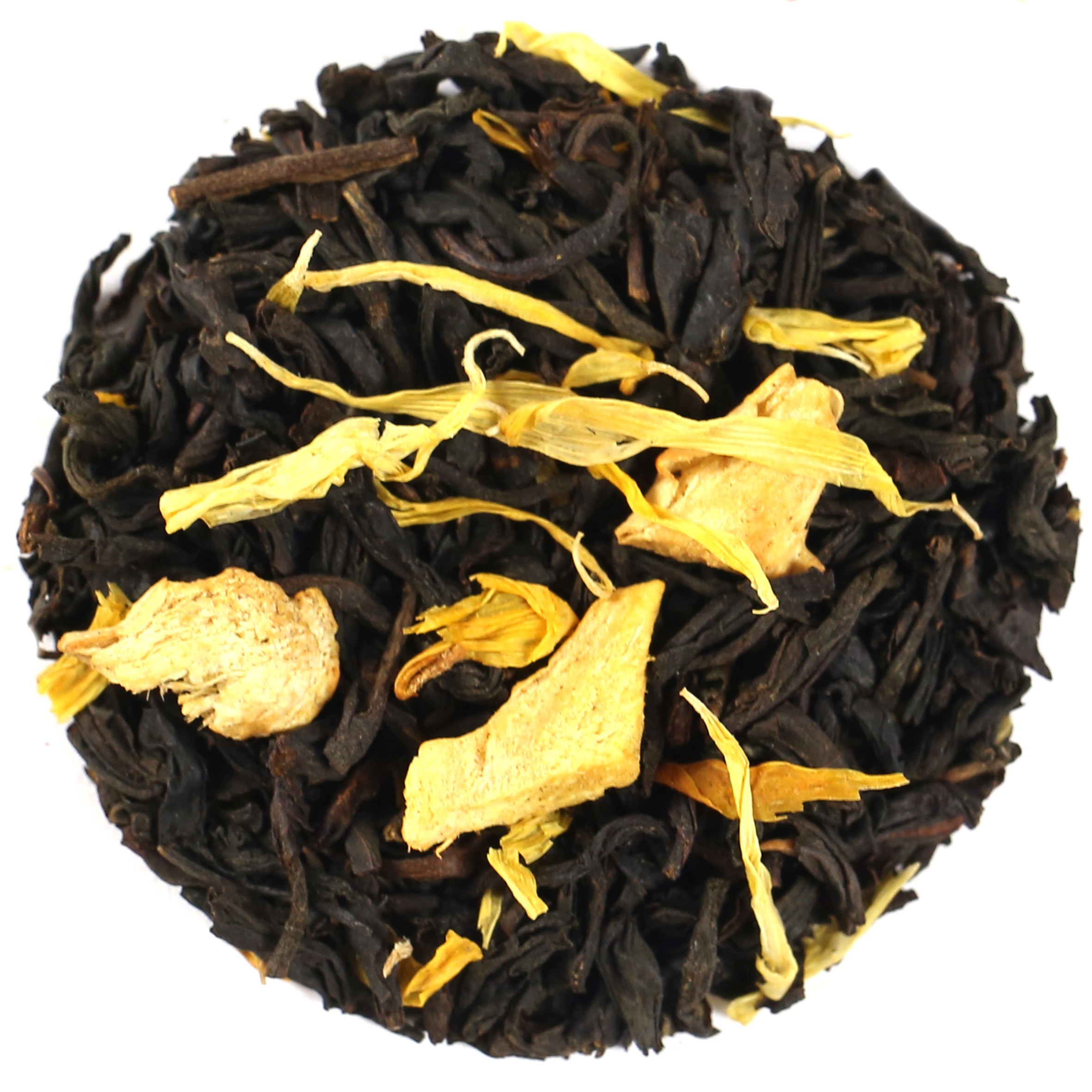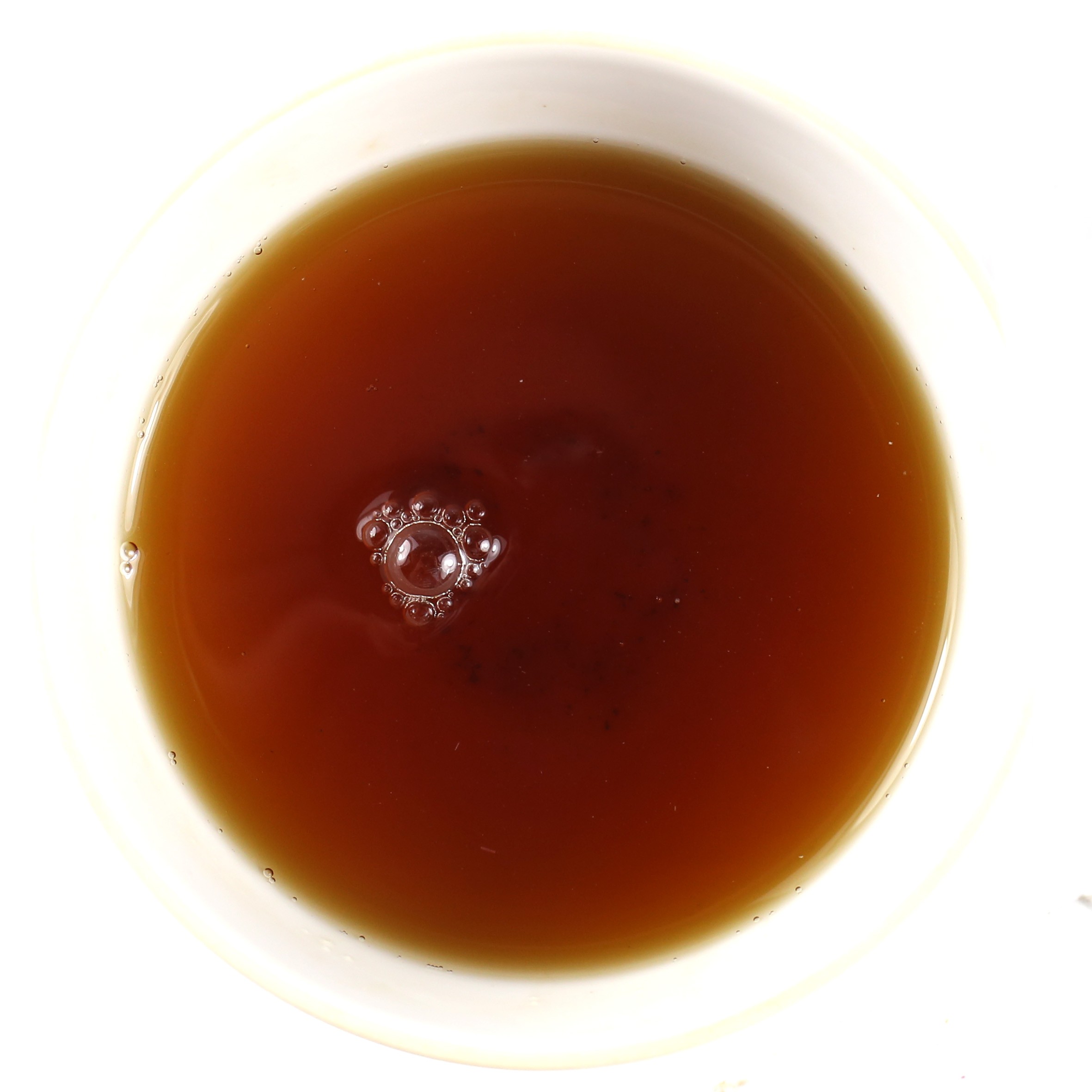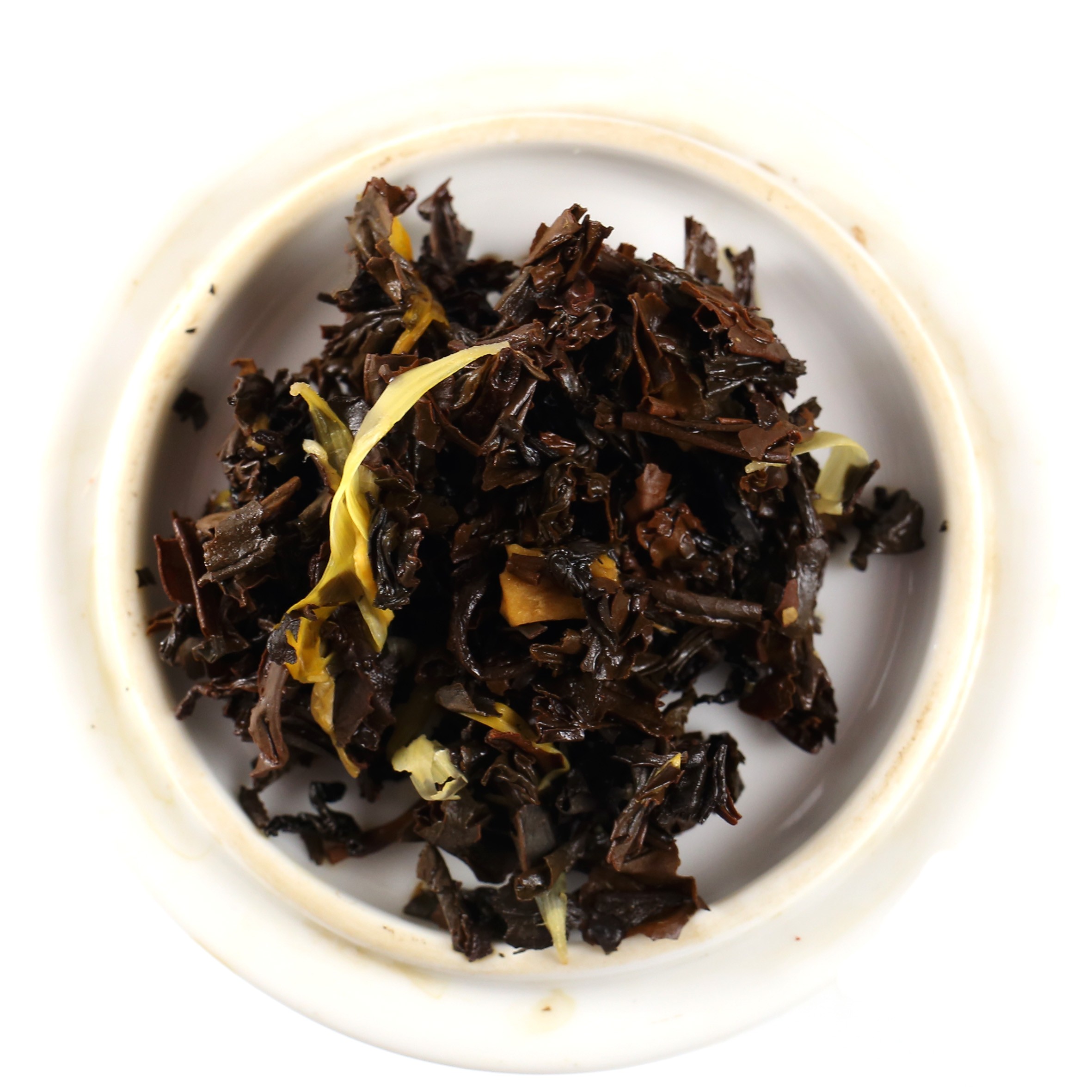Black Tea Brewing Guide

1 Teaspoon
Add 1 teaspoon per person and one for the pot.

95⁰c - 100⁰c
Boil using fresh water, at a temperature of 95⁰ - 100⁰c.

3 - 5 Mins
Steep for 3-5 minutes, depending on personal preference
About Product
-
Product Description
Ginger and Peach Tea is a Loose Leaf Ceylon Tea blended with the perfect pairing of ingredients. When brewed, it has a soft sweetness with a zingy, zesty aftertaste. You can buy it here at The Kent and Sussex Tea and Coffee Company.
Since our establishment in 1982 – over 40 years ago – we’ve packed each Loose Tea and Roast Coffee fresh to order. Doing so ensures not only quality but also consistency.
Ginger and Peach Black Tea Ingredients
Tea leaves from Ceylon (present-day Sri Lanka) have much to offer casual drinkers and connoisseurs alike. They’re renowned for a distinct boldness in cup, the ideal choice for those who prefer a hearty infusion first thing in the morning.
Since the 19th century, when production began, Ceylon Tea has been one of the most beloved varieties in the world. More importantly, it is an excellent base ingredient.
Then there is Ginger Root Tea (Zingiber officinale) of the Zingiberaceae family. Closely related to Cardamom and Turmeric Tea, it grows in great abundance in India, Africa and the Caribbean.
The renowned Chinese philosopher Confucius (551-479 BCE) recommended it before, during and after a meal. Now, you can enjoy it alongside Black Tea and peaches when you follow these instructions:
How to Make Ginger and Peach Tea
1. Purchase a Tea Filter or Infuser for ease and convenience.
2. Add about five grams of Loose Tea into the accessory.
3. Place the item in a cup and pour in freshly boiled water at 100°C.
4. Allow it to infuse for 3-5 minutes for the best flavour.
How to Serve: Consider a slice of lemon or a dollop of honey. Alternatively, serve black.
Tasting Notes: Imparts a soft sweetness with fruity notes and a zingy, zesty aftertaste.
Ginger and Peach Tea Benefits
Confucius was indeed right to consider standalone Ginger Root Tea as an accompaniment to food. The primary reason, according to the latest scientific evidence, is that its phenolic compounds relieve gastrointestinal irritation and lessen gastric contractions.
This is because of its potent anti-inflammatory properties that likewise alleviate acid reflux (heartburn) and other digestive complaints.
And that’s not all. When it comes to Black Tea, recent research has started to uncover its remarkable potential. One such study, conducted in 2018, found that its antioxidants reduce the risk of diabetes, obesity and elevated cholesterol.
Meanwhile, a 2020 meta-analysis found that it lowered blood pressure in people with hypertension. Yet another study showed that it enhanced cognitive function.
Anyone wishing to learn more should read our Ginger Tea Benefits articles.
-
Delivery Information
We offer reliable delivery services through Royal Mail to ensure that your orders reach you on time.
Here are the main points you should be aware of:
- Standard UK Delivery: £3.95 excluding delivery charge.
- Delivery Times: Orders are processed and dispatched within 2-5 working days but they may take longer during busy times. It is worth noting that all our orders are packed by hand in order to maintain the quality.
- Free Delivery: We are delighted to provide free shipping for UK orders over £35*. Moreover, customers from Europe can enjoy free shipping for any purchase above €75*. Furthermore, we offer free delivery in the USA for all purchases exceeding $125*. Please note terms and conditions may apply.
- Tracking: When your package is sent you will receive a tracking number via email so as to keep tabs of its progress.
International Shipping
We do ship worldwide meaning our products can be accessed by anyone around the world.
Here are some important details:
- Delivery Times: International deliveries vary based on destination, generally taking between 7-14 working days.
- Shipping Costs: International shipping costs are calculated at checkout based on your location and weight of your order. View full delivery charges for your location.
- Customs and Import Duties: Remember customs or import duties may exist depending on regulations in your country; these charges are borne by the customer.
Returns Policy
Your satisfaction is our top priority, however if for any reasons you’re not completely happy with your purchase, simply follow our returns procedure:
- Eligibility: Items returned within 30 days of receipt must remain unopened and in their original condition.
- Process: In order to return an item contact our customer service department using your unique order number after which detailed instructions will be given concerning returning them back to us securely.
- Refunds: Our aim is to refund you within 5-7 working days upon successful reception of returned goods. The refund amount will be credited to your original payment method.
For any other Enquiries or help please contact our Customer Support Team always at your service.
-
Product Reviews

 Loose Leaf Tea
Loose Leaf Tea Pyramids
Pyramids Tea Bags
Tea Bags Africa
Africa Assam
Assam Ceylon
Ceylon Chinese
Chinese Darjeeling
Darjeeling European
European Indian
Indian Japan
Japan Nepal
Nepal South East Asia
South East Asia Ayurveda Tea
Ayurveda Tea Black Tea
Black Tea Chai Tea
Chai Tea Flowering Tea
Flowering Tea Fruit Tisanes
Fruit Tisanes Green Tea
Green Tea Herbal Tea
Herbal Tea Matcha Tea
Matcha Tea Oolong Tea
Oolong Tea Organic Tea
Organic Tea Pu erh Tea
Pu erh Tea Rooibos Tea
Rooibos Tea White Tea
White Tea Asian Coffee
Asian Coffee Caribbean Coffee
Caribbean Coffee Central American Coffee
Central American Coffee South American Coffee
South American Coffee Coffee Blends
Coffee Blends Decaffeinated Coffee
Decaffeinated Coffee Espresso Coffee
Espresso Coffee Ethically Sourced Coffee
Ethically Sourced Coffee Flavoured Coffee
Flavoured Coffee Organic Coffee
Organic Coffee Single Origin Coffee
Single Origin Coffee Chocolate 1
Chocolate 1 Chocolate 2
Chocolate 2 Chocolate 3
Chocolate 3 Chocolate 4
Chocolate 4 Chocolate 5
Chocolate 5 Chocolate 6
Chocolate 6 Chocolate 7
Chocolate 7 Chocolate 8
Chocolate 8 Chocolate 9
Chocolate 9 Loose Tea Filters
Loose Tea Filters Tea Accessories
Tea Accessories Tea Bricks
Tea Bricks Tea Caddies
Tea Caddies Tea Caddy Spoons
Tea Caddy Spoons Tea Gift Ideas
Tea Gift Ideas Tea Infusers
Tea Infusers Tea Strainers
Tea Strainers




